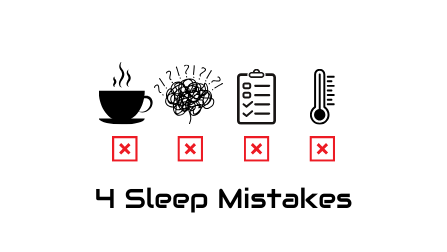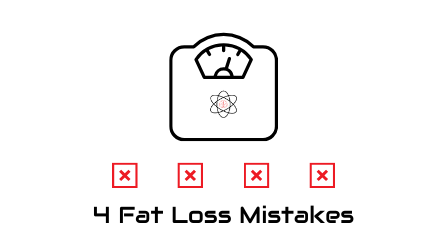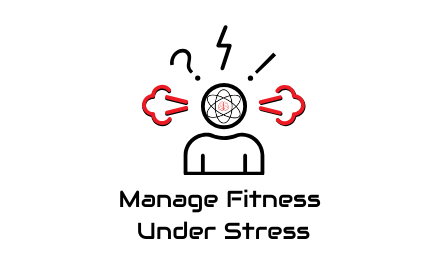The 4 Common Habits Wrecking Your Sleep (and How to Fix Them)
Studio Fit U
Mindset/Motivation
Published: 17/04/2025
Update: 17/04/2025

Consuming Stimulants
Around 80–90% of people in the U.S. consume caffeine daily, and nearly 1 in 5 use nicotine. Now, what you might not know is that these little pick-me-ups are also sleep blockers—they energize your system and keep it alert.
No big deal if it’s just one coffee at 7 a.m., right? But if you’re drinking multiple caffeinated drinks throughout the day and/or smoking or vaping... now we’re on a different continent.
Let’s say you grab a post-lunch coffee around 1 p.m. because your eyelids feel like sandbags. Totally reasonable. But here’s the deal: your body will have only flushed out about 50% of that caffeine by 5 p.m., and the rest won’t be gone until around 10 p.m. That’s a lot of work for your system to do while it’s supposed to be winding down.
Now imagine trying to flush out three coffees, a glass of red wine, and a few puffs of vape—and still expecting to feel sleepy by bedtime. Sorry but not happening.
And don’t forget, it’s not just coffee. Caffeine shows up in pre-workouts, sugary drinks (hello, Coca-Cola), and in considerable amounts in your favorite Starbucks beverages.
How to fix it:
Make a list of all the stimulants in your daily routine—coffee, tea, energy drinks, pre-workout, etc.—and give yourself a cutoff time.
Since caffeine takes 5–10 hours to clear your system, aim to have your last dose at least 8–10 hours before bed. Yes, that might mean no 4 p.m. oat milk latte. You’ll survive (hopefully).
Stress and Overthinking
Evenings might feel chill. You’ve had dinner, the sunset was nice, everything seems okay. But then you lie down—and boom: thoughts start racing like it’s the Monaco Grand Prix.
This is classic mental overload. Your body’s ready for bed, but your mind’s stuck in hyperdrive. And if you don’t give your brain space to decompress before bed, it won’t shut off just because you want it to.
Think of it this way: you’ve got two kids to put to bed—your body and your mind. And they both need to be on the same page, or it’s going to be a trippy night.
How to fix it:
If stress or anxiety is hijacking your bedtime, give it a space to exist before you hit the pillow. Journaling can help—some call it a “brain dump.”
The idea is simple: offload your thoughts, worries, and to-do lists onto paper so they don’t stay swirling in your head all night. Go old-school with a pen and notebook. It works better than typing on your phone (and keeps you off screens too—double win).
Lack of Structure
Inside your body is a built-in clock, and it’s in charge of keeping everything running on time: warming you up, cooling you down, making you hungry, and—yep—putting you to sleep.
But this clock needs structure. If your sleep schedule is all over the place, your body has no clue when it’s supposed to rest. That’s why, after a few late nights studying or Netflixing, it’s basically impossible to fall asleep early the next night. Your system just isn’t ready.
How to fix it:
Your goal is to give your internal clock a consistent schedule so it can help you fall asleep and wake up feeling clear-headed.
That means going to bed and waking up at roughly the same time every day (yes, weekends included). Sleeping in for three hours on Sunday and staying up late Saturday night? Not the best move if you want real recovery.
We like the 80/20 rule: Be consistent 80% of the time, and enjoy a little flexibility the other 20%. Don’t aim for perfection—aim for rhythm.
Poor Sleep Environment
Most people think that sleep just means going to bed. But your body and mind are very aware of your surroundings—and if your bedroom is bright, noisy, or too warm… Well, no bueno cariño.
Even subtle things can throw off your rest. Think about it: when you fall asleep, you’re literally becoming unconscious for hours. That’s a vulnerable state—your body wants to feel safe and secure first.
How to fix it:
Start dimming the lights a couple of hours before bed to signal to your brain that it’s time to chill. Combine that with some quiet time—no intense shows, heated convos, or last-minute work emails.
Your bedroom should be dark, quiet, and cool. The ideal temp is around 18°C (or 65°F). Use blackout curtains, earplugs, a sleep mask—whatever helps. It doesn’t need to be fancy, just functional.
Final Thoughts
These habits might seem small, but they can seriously mess with your ability to sleep and recover. The good news? They’re all fixable. And most don’t cost a thing—just a bit of awareness and consistency.
If you’ve been feeling tired, foggy, or just not like yourself, look at your sleep habits first. One small tweak might be all it takes to feel like a human again.
Got a sleep question or need help with your recovery routine? Drop us a message—we’re here to help.
In the same category



Personal & Personalized Training
MONTREAL
4824 Ch. de la Côte-des-Neiges, Montréal, QC H3V 1G4